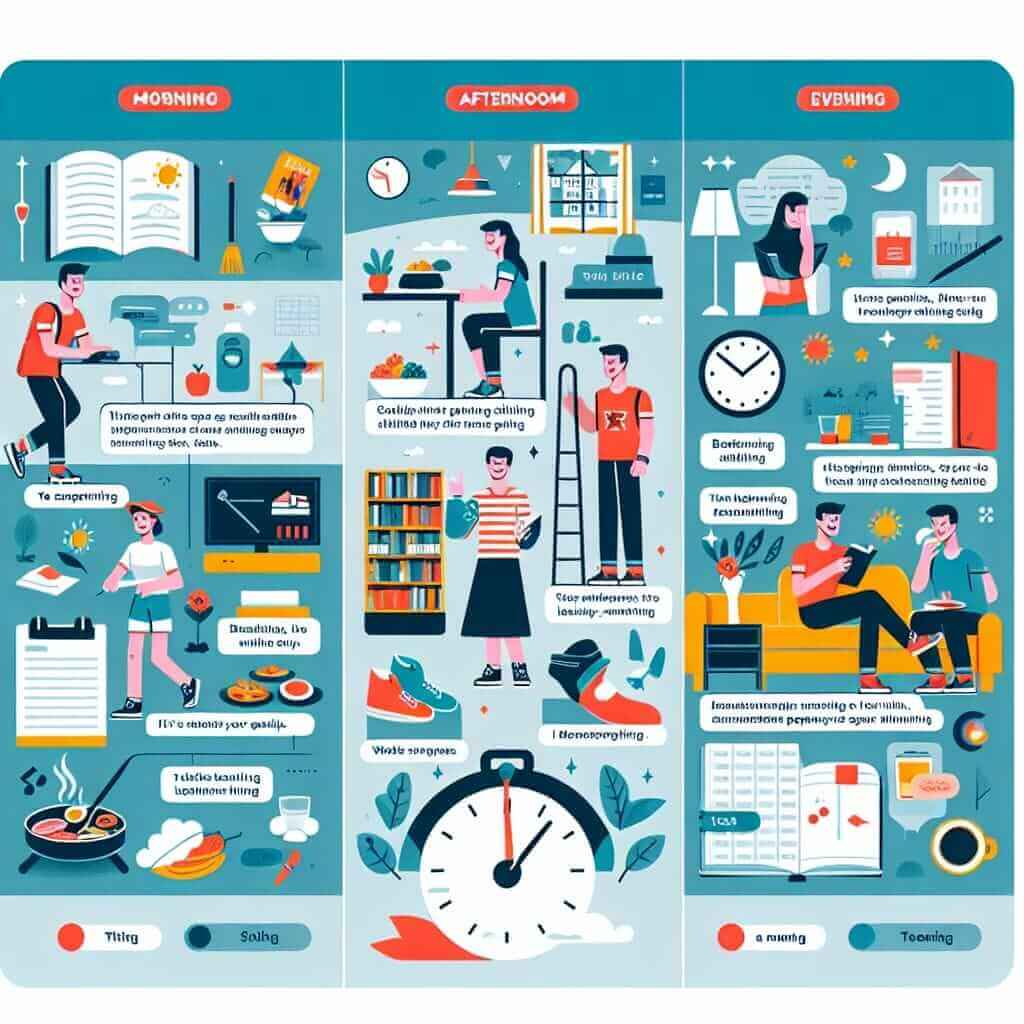As an IELTS instructor with over 20 years of experience, I’ve encountered countless students grappling with the “Describe your day off” question in the IELTS Speaking test. While seemingly straightforward, this question often throws test-takers off guard. They struggle to articulate their routines in a natural, engaging manner while showcasing their English proficiency.
This comprehensive guide delves into the intricacies of effectively answering “How do you usually spend your day off?” in the IELTS Speaking test. We’ll equip you with vocabulary, strategies, and example answers to confidently navigate this common question and boost your IELTS Speaking score.
Understanding the Question’s Significance
The IELTS Speaking test assesses your ability to communicate effectively in English. This specific question evaluates your capacity to:
- Describe routines and habits using appropriate tenses (present simple, present continuous).
- Utilize a variety of vocabulary related to leisure activities, hobbies, and daily routines.
- Structure your response coherently and logically.
- Demonstrate fluency and pronunciation.
Crafting Your Ideal Response
While there’s no one-size-fits-all answer, following these steps will help you structure a compelling and high-scoring response:
1. Start with a Hook: Instead of directly stating your routine, begin with an engaging sentence that sets the tone for your answer.
Example: “Well, my days off are precious to me, so I try to make the most of them.”
2. Outline Your Typical Day: Briefly describe the general structure of your day off.
Example: “I’m definitely a morning person, so I usually wake up quite early even on weekends. After a quick breakfast, I dedicate some time to my hobbies before heading out to meet friends or run errands.”
3. Elaborate on Specific Activities: Choose 2-3 activities that you genuinely enjoy and describe them in detail. Use vivid language and sensory details to make your response engaging.
Example: “One of my favorite things to do is hike in the nearby nature reserve. The fresh air, the sound of birdsong, and the breathtaking views always leave me feeling refreshed and rejuvenated.”
4. Highlight Variety (If Applicable): If you have different routines on different days off, mention that to showcase your flexibility in language use.
Example: “On some weekends, I volunteer at a local animal shelter. It’s incredibly rewarding to spend time caring for animals and making a difference in their lives.”
5. Conclude Thoughtfully: End your response with a concluding sentence that summarizes your feelings about your days off.
Example: “Overall, I cherish my days off as they allow me to recharge, pursue my passions, and spend quality time with loved ones.”

Example Answer
“Well, my days off are precious to me, so I try to make the most of them. I’m definitely a morning person, so I usually wake up quite early even on weekends. After a quick and healthy breakfast, I like to head to my local park for a run. It helps me clear my head and start the day off feeling energized. Afterward, I usually dedicate some time to reading or catching up with friends and family. I’m an avid reader, and escaping into a good book is one of my favorite ways to relax. In the evenings, I might catch a movie, try out a new recipe, or simply unwind with some music. Overall, I cherish my days off as they allow me to recharge, pursue my passions, and spend quality time with loved ones.”
Key Tips and Vocabulary
- Use a range of tenses: Practice using the present simple to describe routines and the present continuous for activities happening at the time of speaking.
- Expand your vocabulary: Incorporate vocabulary related to hobbies, leisure activities, and emotions (relax, unwind, socialize, invigorating, fulfilling).
- Speak naturally and confidently: Focus on fluency and pronunciation. Record yourself practicing to identify areas for improvement.
- Don’t be afraid to be personal: Share genuine interests and experiences. The examiner wants to hear about YOU.
Final Thoughts
Remember, the “How do you usually spend your day off?” question is an opportunity to demonstrate your English proficiency in a conversational setting. By following these tips and practicing your responses, you’ll be well-prepared to impress the examiner and achieve your desired IELTS Speaking score.